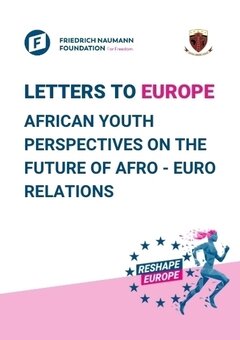Letters to Europe
Bildungsunterschiede und Herausforderungen in den afrikanisch-europäischen Beziehungen

Tanatsiwa Christabel Dube
Young people in Zimbabwe perceive Europe as a developed region offering abundant job and personal growth prospects. Consequently, many young Zimbabweans aspire to migrate to Europe in pursuit of educational and employment opportunities, as well as personal and social development. However, contemporary African-European relations face significant challenges, primarily centered around disparities in education. Specifically, European schools are highly technologically advanced, whereas African schools, particularly in less developed regions, still rely on traditional pen and paper methods, lacking adequate technological infrastructure.
This glaring economic and educational gap hinders effective Afro-Euro relations. Enhanced cooperation between Africa and Europe would result in increased opportunities for young individuals to foster mobility that can lead to positive change not only globally, but also within individuals' home countries. Europe, in particular, can serve as a valuable platform for training and personal development, enabling individuals to acquire new skills and knowledge that can be applied back in Africa. Cooperation should focus on various fields, with the education sector being the primary area of concern due to its significant gap and crucial importance. Additionally, collaboration should be sought in addressing unemployment and improving the employment sector, as these efforts would contribute to the overall development of Africa. Moreover, both regions should extend support to each other in matters of diplomacy, particularly with regard to social welfare, as many African countries still lag behind in safeguarding human rights within their borders.

